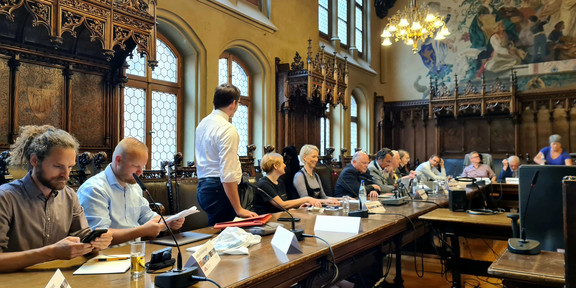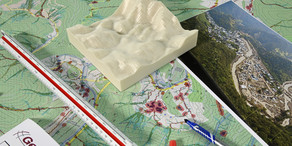International Reflections on Munich's land policy
- News

When discussing land policy in Germany, there is no getting around the example of Munich. That is why the ARL's "International Working Group (IAK) on Land Policy in Europe," chaired by Prof. Thomas Hartmann, met in Munich in September 2023 to continue its international deliberations on land policy in 12 European countries. The meeting had three main objectives: First, to continue the debate to find a common understanding of land policy; second, to learn about and reflect on the Munich Land Policy; and third, to continue work on the book Land Policies in Europe.
Land policy is understood differently in different countries. The members of the working group from Great Britain, Norway, Sweden, Finland, Poland, the Czech Republic, Austria, Switzerland, France, Germany, Belgium and the Netherlands discussed and developed differentiated views based on their respective national definitions. The common core here concerns the relationship between planning for public interests and private property.
In two presentations by Alexander Lang (Planning Department) and Raymond Saller (Department of Labor and Economic Development), specific aspects of Munich's land policy were presented and discussed with the participants. Complementing these presentations from the public side, Han Joosten (Head of Urban Development at BPD Germany) spoke about missed opportunities in German land development, taking the perspective of a major real estate developer with experience from abroad. One of the key messages that received much attention in the discussion was his provocation that German planning is largely over-regulated. Stephan Reiß-Schmidt then added a perspective from the Initiative for a Socially Just Property Law (Bündnis Bodenwende) in Germany. He focused on the legal and constitutional aspects of property regulation in Germany.
Finally, Munich's land policy debates were illustrated in an excursion. The example of the creative quarter was used to show the possibilities of public land ownership. Instead of selling the former barracks near the city center for a profit, the area is left in the ownership of the city and made available to users who would not have a chance under normal market conditions. With this decommodification, the city allows a playground for ideas (e.g., in the creative industries) before they are fully established and profitable. The participants confirmed how important the explanations and discussions and the practical insight into land policy in Munich were.
In the final phase of the working group, efforts are focused on the completion of two main products. A special issue of the journal Raumforschung und Raumordnung will be published in December. In addition, work is underway to publish an edited volume. The book will provide a comparative perspective on land policy. Instead of a comprehensive and exhaustive comparison, it offers qualitative examples of land policy challenges from 12 different countries. It therefore follows a specific structure that allows for a systematic consideration of the different approaches to land policy. In this way, the book provides students and early career scholars with a starting point to think outside the box about land policy. The book is scheduled for publication in the summer of 2024.






